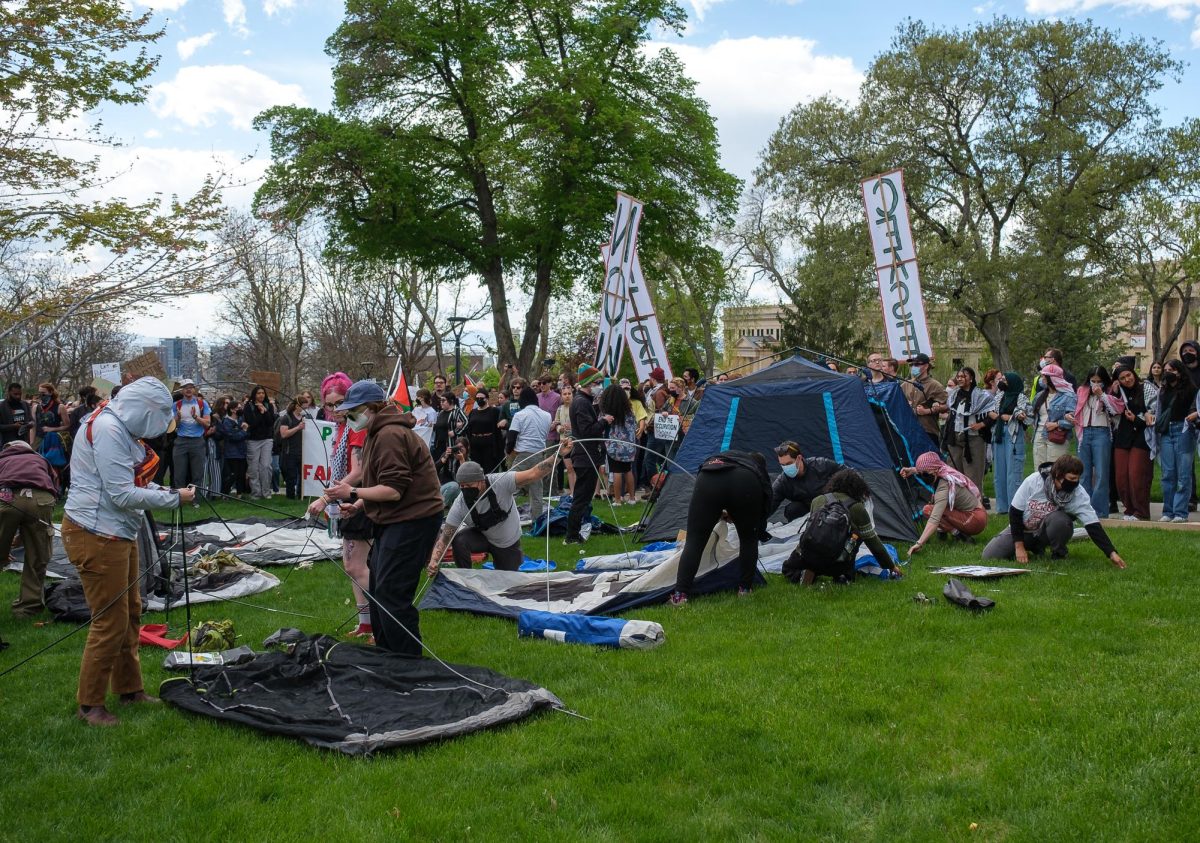The Ordain Women organization and affiliate movement were two of the topics discussed at Sunstone’s Salt Lake Symposium, held on the U campus earlier this month. Much of the talk centered on the issues the Church of Jesus Christ of Latter-day Saints has with the “tone” of the organization’s materials and actions. I’ve heard similar sentiments in LDS and non-LDS circles alike — that people like the organization’s founder, Kate Kelly, should just leave the LDS faith tradition if they aren’t comfortable with the entrenched patriarchal power structure. I would argue that such commentary betrays an ignorance of why intra-institutional progressives are morally and politically crucial. The Ordain Women movement is an important step forward in addressing issues of ambivalent sexism in the LDS (and, by association, the Utah) community.
The Ordain Women movement does not view itself as a heretical break from the LDS theological tradition. Although oft-criticized as a disruptive influence, the organization rather presents a creative attempt to address and discuss systemic issues of sexism within the faith tradition that many are likely unaware of. Looking at the organization’s website, it’s clear that its goal is to confront the church’s patriarchal political power structure with a 21st century understanding of gender theory. The website’s primary information resides in six “conversations” (a lightly disguised re-purpose of the format of the LDS missionary “discussions” that were used until the early 2000’s), intended for an LDS audience, that identify historical instances of LDS female priesthood holders, introduce modern gender theory terminology, establish a theological basis within the faith tradition for female ordination and challenge participants to push for intra-institutional change.
All of this discussion seems to have to been lost in translation in the movement’s attempt to communicate with LDS church leadership. A possible reason for the ignorance (willful or otherwise) is a likely misunderstanding of gender theory and what sort of sexism is actually being addressed. Ambivalent sexism is the theoretical juxtaposition of the concepts of “hostile sexism” and “benevolent” sexism. Hostile sexism entails overt actions of bias, prejudice and/or discrimination against a gender class. Benevolent sexism entails gender class discrimination that can be presented or interpreted as subjectively positive but which is ultimately harmful.
The elements that distinguish benevolently sexist attitudes toward women from the hostile and overt nature of misogyny are a seemingly positive evaluation on the part of the discriminating body coupled with well-meaning intentions. An example of this might be praise singling out a woman as being better suited (due to her female nature) to nurturing children than working on her career — the intention is positive, but the praise is given with sexist assumptions. The LDS church’s attempts to cultivate a reverential attitude towards theological “roles” assigned along with gender seem to better be described as an issue of benevolent sexism than as being overtly hostile towards women. The Ordain Women movement is not a challenge to the intent of existing leadership (although it is clearly seen as such), but rather an intra-institutional critique of this strain of “benign” sexism.
The LDS church and its membership comprise a powerful voice within the larger Utah community. Because of this, addressing political issues within an LDS context effectively addresses them at large within the state. It seems clear to me that the conversation Ordain Women has started is less about subverting what is perceived to be “the power of God on earth” and more about subverting the complacent acceptance of a patriarchy and the gender inequity inherent in such a system. Since class discrimination is a continually pertinent issue within the workplace and other areas of day-to-day life throughout society, Utahns within and without the LDS faith tradition should stop dismissing this movement and the opportunity it brings to discuss gender inequity in our community.










